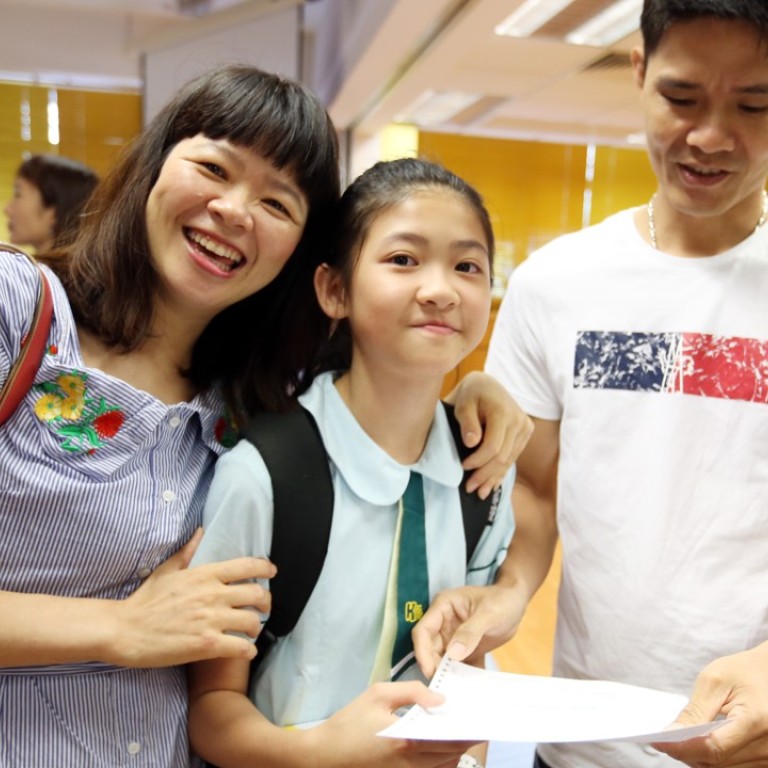
Hong Kong pupils find out if they passed biggest test – getting into secondary school of their choice
While 90 per cent are allocated to one of their top three options, others face a nerve-racking scramble to grab the few places still up for grabs
With their primary education coming to an end, pupils at one school in Kwai Chung are moving on to their next stage of life with a mixture of anticipation and worry.
But nervousness among the Primary Six pupils as they waited for teachers to inform them which secondary school they had been allocated quickly turned into cheers and high-fives for many.
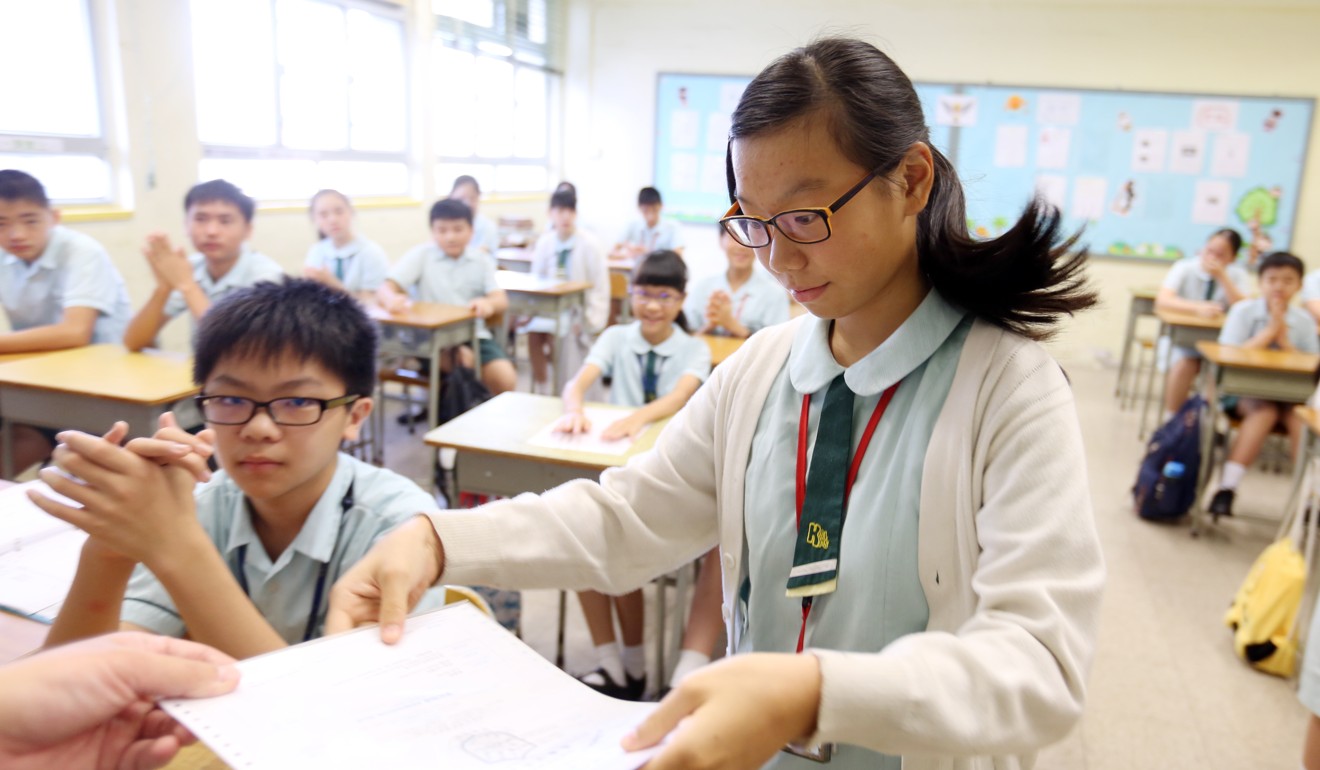
About 76 per cent of pupils at ELCHK Kwai Shing Lutheran Primary School got into their top choice, principal Tsui Hei-lai said – the same figure for the city as a whole and a four-year low.
Tsui said 97.1 per cent of youngsters were offered a place at one of their top three choices, compared with 90 per cent across the city.
Under the allocation system, children are assigned places in schools based on their exam results, catchment area, choice of schools and a random number assigned to each applicant.
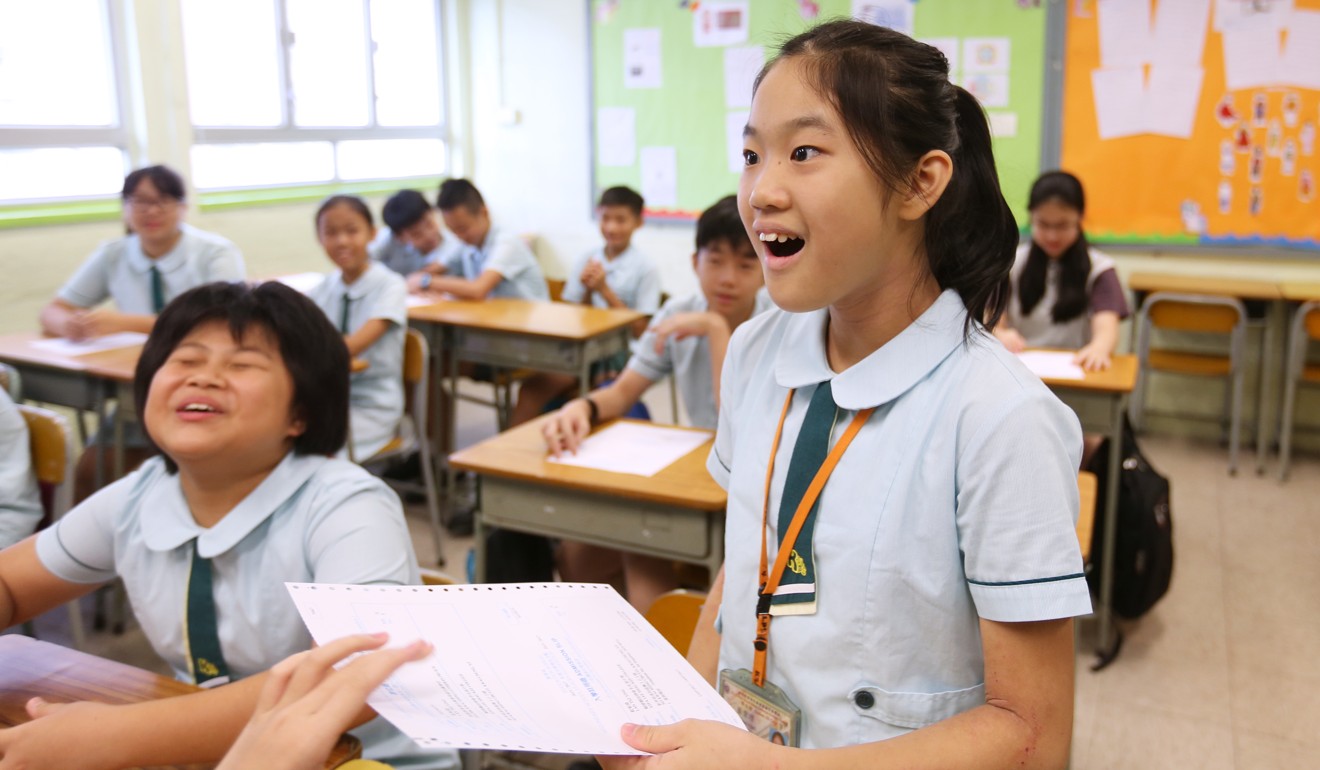
Yuki Li Yan-yui was overjoyed at getting into top school STFA Lee Shau Kee College, where English is the medium of instruction. She said she looked forward to its wide range of extra-curricular activities and larger campus.
The Kwai Shing primary school is one of around 20 “matchbox-style” schools built in the 1960s and 80s between public housing estates notorious for their bad ventilation and poor sound insulation. Calls for improvement work and redevelopment have grown in recent years.
Li said sometimes she envied other primary schools that had big campuses but was grateful she had teachers who were nurturing, giving her “a sense of security and home”.
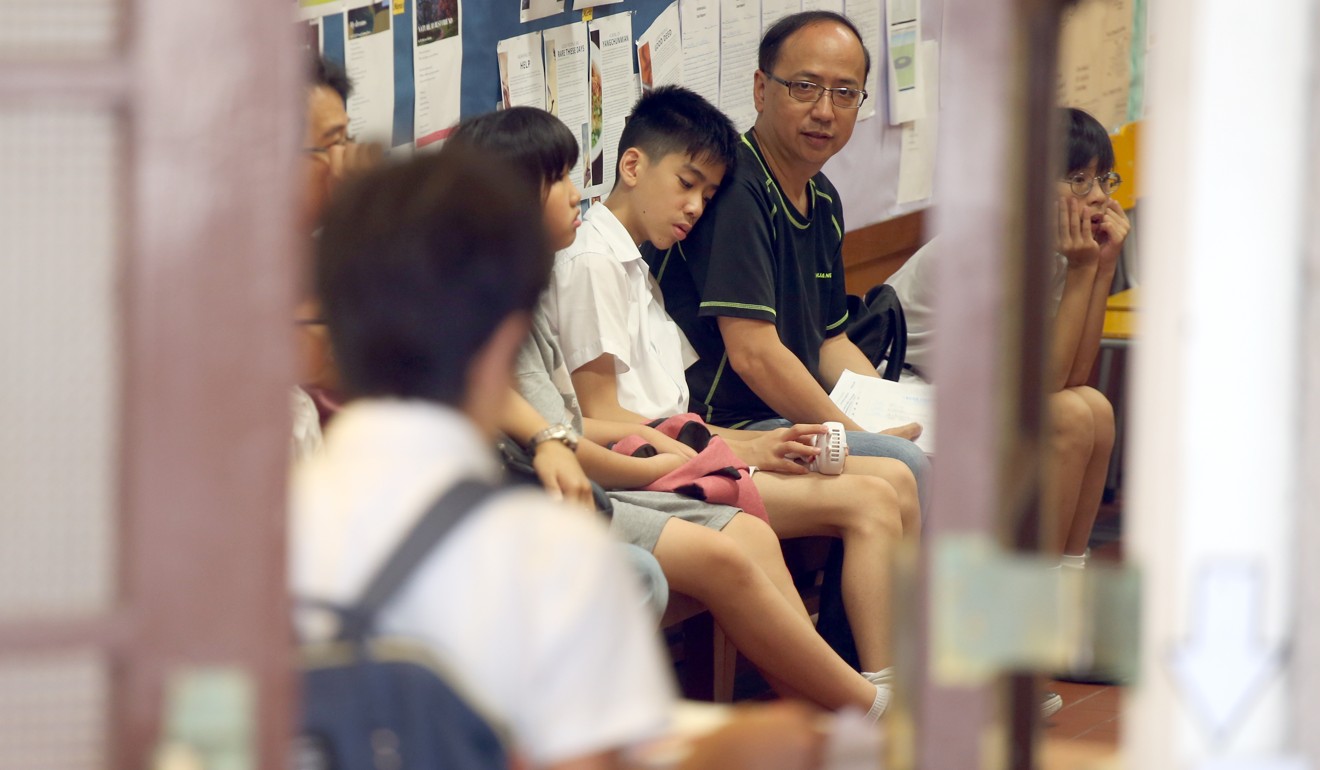
But she was concerned about adapting to an English-medium school. “Here, we use Chinese as a medium of instruction, so changing to using English mainly will be difficult.”
To prepare, she intended to practise English with her cousin, a university student, when she visits mainland China with her parents on holiday.
Viester Lan Tsz-ying, Li’s friend and classmate, was posted to the same secondary school.
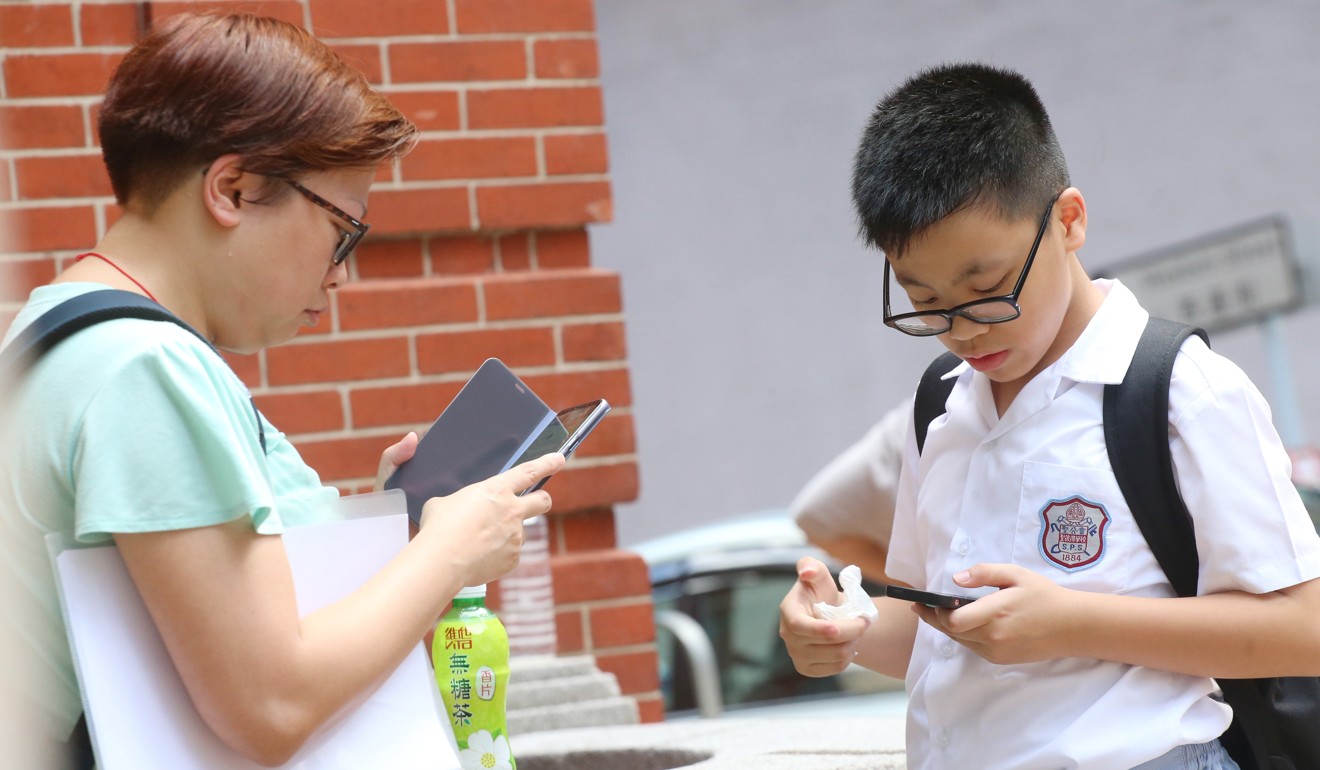
She was shocked that she had made it to the top school and said she would start reading her English secondary school textbooks once she got her hands on them.
Elsewhere, pupils and parents not happy with their postings began “knocking doors”, a practice of dropping applications in schools in hopes of getting a rare few leftover places.
A woman who asked to be identified by her surname Woo and her son paid a visit to King’s College in Sai Ying Pun. They were disappointed at being posted to Chong Gene Hang College, which was outside their top five.
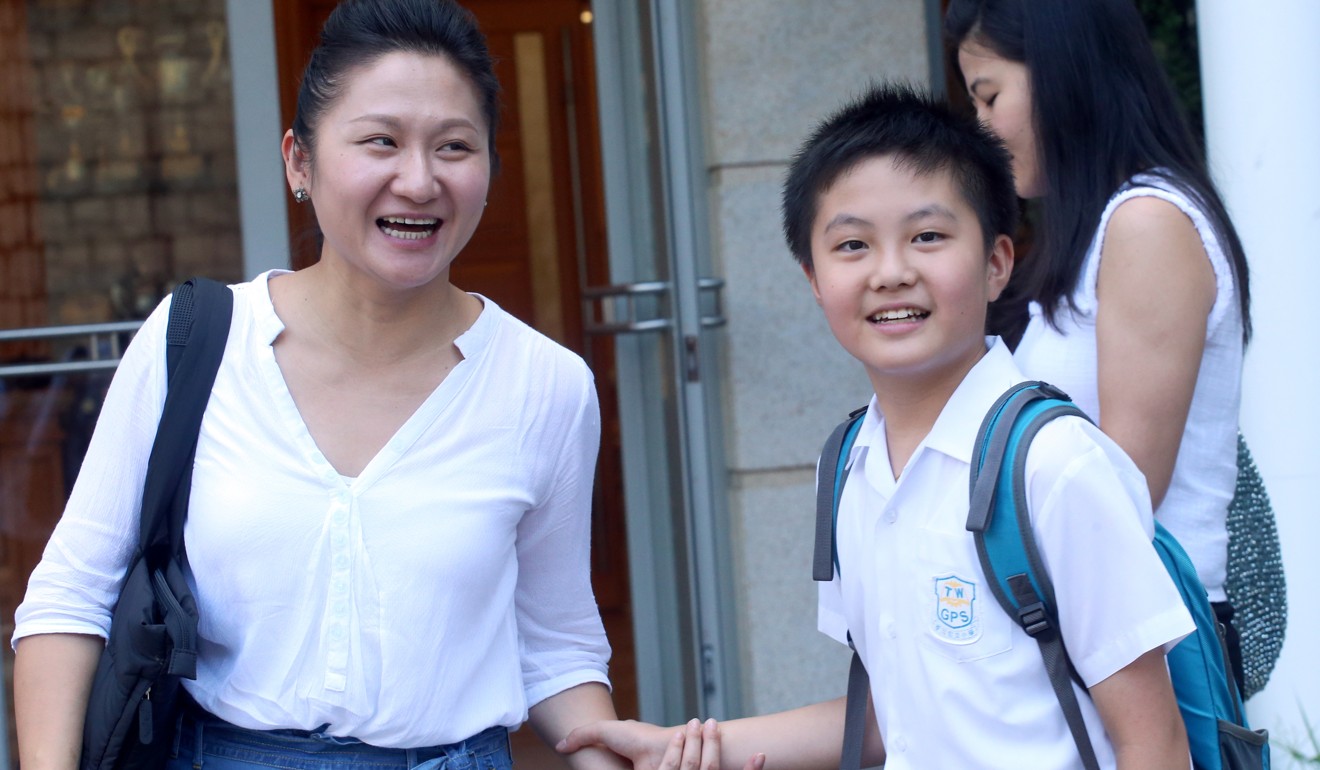
The two planned to spend the day going to as many schools as possible around their home in the western part of Hong Kong Island.
He had good grades but bad luck
“There are many famous schools in the district, any one of which would work for us,” said the mother, who had taken the day off work. “He had good grades but bad luck.”
Justin Cheng was accompanied by his parents and aunt to see about a place at St Paul’s College, a direct subsidy scheme (DSS) school, even though he was given his top choice, Tsuen Wan Government Secondary School.
DSS schools charge higher fees but enjoy greater freedom in setting their curriculum than those funded by the government.
St Paul’s College had received 161 applications on Tuesday for nine places, assistant vice-principal Gladys Chung Wong Yuen-har said. Seven of the places were later filled, and Wednesday was to be the last day for applications.


